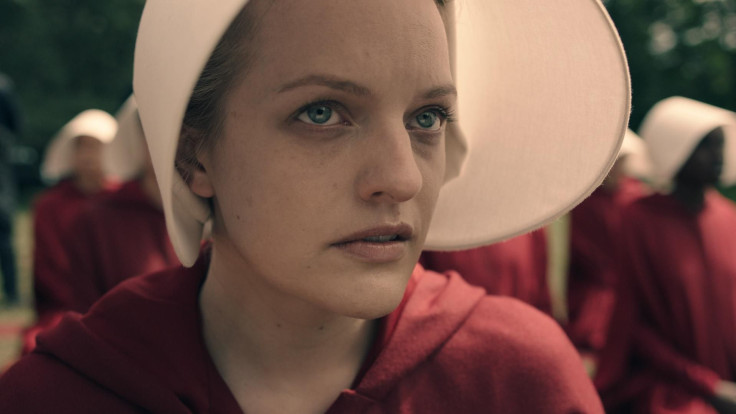The word “Republican” doesn’t appear in Margaret Atwood’s The Handmaid’s Tale, a fictional record of the militant Christian takeover of America and the misogynist dystopian Republic of Gilead they found in its aftermath. But there’s no missing or mistaking Gilead’s similarity to contemporary conservative American politics. Features like an entrenched elite capturing wealth without fear of the justice system are universal to authoritarian politics of all stripes, but so much more of The Handmaid’s Tale is specific to American Christian conservatives, for decades a core of the Republican Party’s base. The right-wing Christian society of The Handmaid’s Tale is anti-abortion, enforces subordination of women, rolls back voting rights, recreates racial apartheid and enforces its will at gunpoint. Yet coverage of Hulu’s upcoming adaptation of The Handmaid’s Tale is overwhelmingly guarded, using vaporous phrases like “more relevant than ever ” and “ in light of the current political climate.”
Of course, The Handmaid’s Tale author Margaret Atwood has been way less circumspect. “Somebody has to tell the Republicans The Handmaid’s Tale is not a blueprint,” she said to the BBC. “The religious right in the United States has not faded away.” She even characterized her writing in The Handmaid’s Tale as not “worried enough” about Republican plans for the future of the United States.
The Handmaid’s Tale is not prophecy. But as Atwood’s darkest vision for the future of Reaganism it speaks to the same fears, as we embark on Trump’s latest Republican experiment in radical right-wing politics.
What Offred’s narrative accomplishes is visceral and immediate. There’s no historical context or journalistic objectivity available to her. Like all women, she’s no longer allowed to read. Much of what we learn about the Republic of Gilead and their coup comes secondhand, passed down resistance networks to Offred. But the jarring end of The Handmaid’s Tale offers the most distant perspective possible: an academic conference on “Gileadean Studies” held over a century after the events of the novel, in 2195.
The Handmaid’s Tale novel has no optimism to offer the people who live through right-wing authoritarianism. But it does end with a world that found its way through a very dark chapter and reaffirmed egalitarian ideals on the other end. The academic conference is held in a future where the values of gender equality, free speech and open religious tolerance have returned. But while the novel offers that much, it doesn’t have an answer for how to get there or promise any justice for those who die along the way. Our world is not the world of The Handmaid’s Tale, but that’s no reason to pretend we don’t know exactly the politics and people it’s warning us against.
The trailer for The Handmaid’s Tale promises a show that’s not shy about its politics, despite the dispassionate way it’s been written about. Executive Producer Bruce Miller hopes that the series will be successful enough to take its narrative beyond the novel. “I have no trouble coming up with what’s going to happen in season 13,” he said to Entertainment Weekly.


















